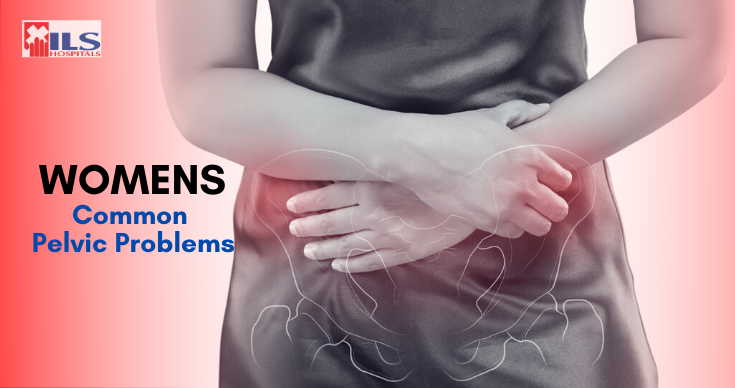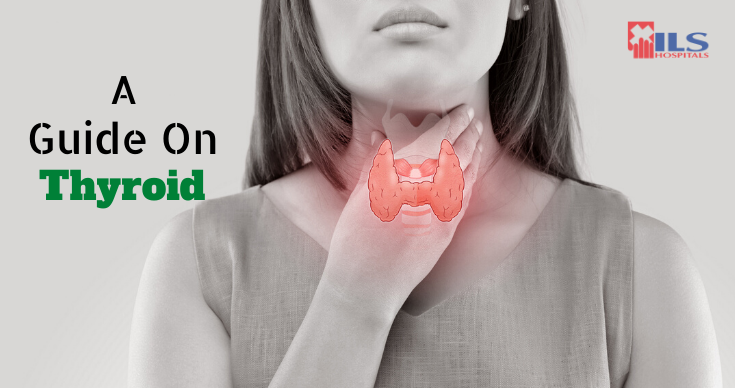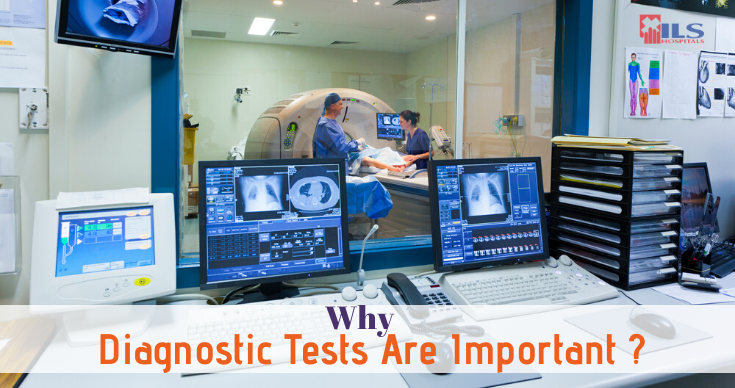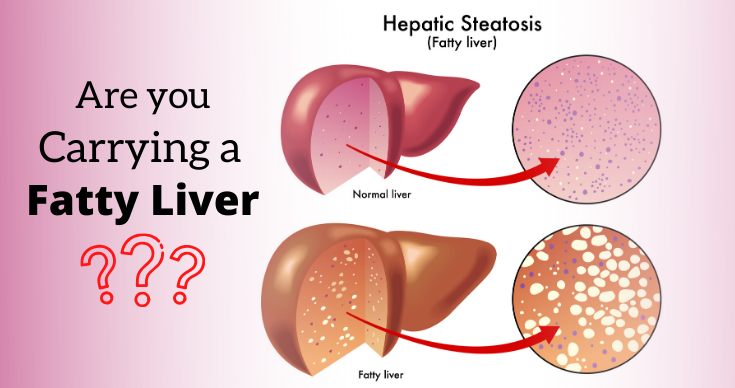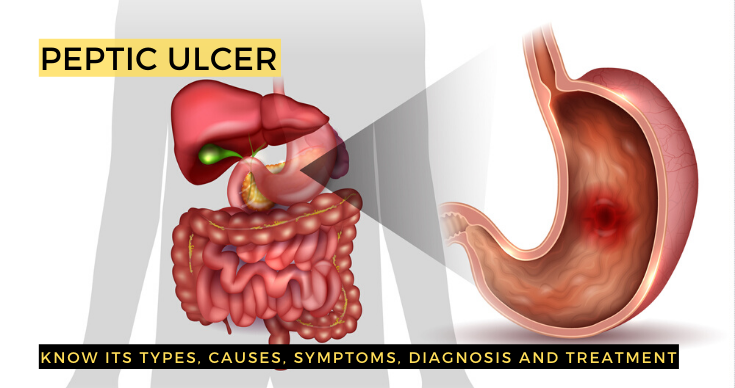How To Take Care Of Your Health If You Are A Woman
Dear women, you are an important part of our society. As a woman, your health and mental well-being is supreme.
ILS Hospitals, one of the best hospitals in Kolkata, would like to present some health tips every woman should follow for a healthy body and mind.
1. Eat a healthy diet:
We’ve heard this almost all the time because it’s a true fact. Women should include fruits, vegetables, leafy greens, poultry, seafood, dairy products, dry fruits, legumes, lentils and so on in their diet.
2. Stay hydrated:
Drinking water is unavoidable. Apart from drinking adequate water, you should also have healthy soups, juices, lassi, buttermilk, smoothies and so on. Milk is something all women must include in their daily routine. Have a glass of milk every night to get the dose of calcium and prevent insomnia.
3. Be physically active:
In a busy schedule, it’s difficult for some people to visit the gym and do other physical activities. However, being physically active is not difficult. Even a 10-minute-walk to your nearest park or maidan can help your body and mind. Try walking, running, yoga and even doing household chores for a fit body.
4. Abandon your bad habits:
Bad habits are hard to break but with determination and strong support system there’s a chance of quitting them forever. Some common bad habits are:
-
Smoking
-
Drug and alcohol abuse
-
Being unhygienic
-
Undereating or overeating
-
Consuming unhealthy and outside food
-
Constantly stressing over things
-
Being negative
-
Addiction to smartphones and other gadgets.
So, say goodbye to your bad habits!
5. Practice proper hygiene:
Maintaining hygiene has been taught to us from our school days. Here are some simple personal and feminine hygiene tips for all girls and women:
-
Brush and floss twice a day
-
Shower or bath once a day
-
Clean your vagina with warm water
-
Wash hands frequently
-
Wash your face at least twice a day
-
Shampoo and condition your hair once or twice a week
-
Keep your nails trimmed and tidy
-
Wear clean underwear and clothes
-
Change your sanitary products frequently
-
Live in a clean and hygienic environment.
6. Visit a medical professional regularly:
As a woman, gynaecologist is going to be your best friend. Visit a good gynaecologist and raise your concerns regarding your health. You should also ask the gynaecologist about multivitamin supplements and breast self-examination.
7. Be positive:
A positive mind is a healthy and happy mind. Do not take stress unnecessarily. Love and care for the ones around you and get the same in return. Stress and anxiety are called silent killers, avoid them completely. Seek professional therapy if you find yourself unable to deal with your current situation.
You can always visit ILS Hospitals in Kolkata and Agartala whenever needed. Our entire hospital team is there to help and support you.
How To Take Care Of Your Child’s Health
Parenting is no child’s play. It takes multiple efforts and patience from the parent’s end to raise healthy children. Today’s children are tomorrow’s leaders so taking care of them means ensuring a healthy future of our country.
As a parent, it’s normal to be constantly worried about your kid’s health. So, today ILS Hospitals, the best hospital in Kolkata would like to share some health tips that will ensure your child’s good health. Let’s take a look at them.
1. Serve nutritious food:
Children are picky eaters by nature which can cause problems to the parents and affect the child’s growth and development. Your children deserve adequate nutrition which they will get from fruits, vegetables, pulses, dairy, meat and nuts. Your children do not like eating nutritious foods because they find it boring. Serve healthy meals with a tasty twist. Start with a wholesome breakfast of poha, upma, oats idli, stuffed parantha, boiled eggs, whole-wheat toast and milk. Ensure to pack one fruit of any choice on your kid’s lunch box. For lunch and dinner, you can go for the basic rice, roti, dal, vegetable curries, meat, salad and so on.
2. Feed your child frequently:
Mothers usually stuff their children’s plate with foods in larger quantities. Let your child eat frequent small meals throughout the day. Instead of piling up your kid’s plate with more food allow your child to ask for a second serving. The notion is to ensure that your children eat 4-5 meals a day to get more energy and nutrition.
3. Give them a glass of milk daily:
Give your children a glass of milk daily either during the morning or evening. If your child finds it difficult to fall asleep at night then let them drink milk before going to bed.
4. Encourage good hygiene:
Teach your kids to wash their hands properly and frequently as and when required to prevent infections and diseases.
5. Pay attention to their mental well-being:
Children are sensitive. A loving environment will improve your child’s mental health. Give lots of love and support to your kids.
6. Take them to get routine health checkups:
Regular health checkups are important for your child’s good health. ILS Hospitals value your child’s health and well-being so we offer Child Health Checkup Packages in our hospital units. Our Paediatric Unit works around the clock to ensure your child’s health and mental well-being.
Visit ILS Hospitals, the best hospital in Kolkata and Agartala for optimal medical supervision.
5 Common Pelvic Problems Faced By Many Womens
Being a woman is not easy. Women have to deal with many gynaecological issues during their entire life. Here we will tell you about 5 common pelvic problems faced by a majority of women.
1. Urinary Tract Infection (UTI):
A common gynaecological problem faced by many women is Urinary tract infection or UTI which can infect any part of the urinary system (bladder kidneys, ureters and urethra). UTI is generally caused by bacteria but in some cases, viruses and fungi can also contribute to this situation. The symptoms of UTI are as follows:
-
Hematuria
-
Urinary urgency
-
Little or no urine
-
Foul-smelling urine
-
Dysuria or painful urination
-
Fever and chills
-
Pelvic pain.
Treatment involves antibiotics, antivirals, antifungal or antimycotic medication (depending on the causative agent).
2. Uterine Fibroids:
Uterine Fibroids are non-cancerous tumours that develop in the uterus usually during the childbearing years of a woman. They can be caused due to hormonal changes, family history of fibroids, obesity and early onset of puberty. The symptoms of fibroids depend on the size and number of tumours. Some symptoms associated with fibroids are as follows:
-
Heavy and prolonged menstruation
-
Severe menstrual cramps
-
Constipation
-
Frequent urination
-
Pain during sexual intercourse
-
Urinary retention or inability to empty the bladder
-
Pelvic pain and discomfort
-
Backache
-
Bloating
-
Abdominal swelling
-
Anaemia
-
Problems in conception and labour
-
Recurrent miscarriage.
Treatment: Medication and surgery including the advance minimally-invasive procedures.
3. Ovarian cyst:
Ovarian cysts are fluid-filled sacs that originate in the ovaries. They can occur because of hormonal problems, pregnancy, endometriosis, severe Pelvic inflammatory disease (PID). Ovarian cysts are painless and cause no major symptoms but can create problems if ruptured. Many times cysts go away on their own and don’t causes any symptoms. Some symptoms of this condition are as follows:
-
Nausea and Vomiting
-
Bloating
-
Severe pain in the abdomen
-
Pain and tenderness in the breasts
-
Abnormal and irregular bleeding
-
Severe pelvic pain
-
Dyspareunia or pain during sex.
Treatment: Medication, ovarian cystectomy, oophorectomy and hysterectomy (laparoscopic procedures can be performed).
4. Endometriosis:
Endometriosis is a condition in which the uterine lining, the endometrium, grows outside the uterus. You can get endometriosis if you suffer from retrograde menstruation and have problems in the immune system. Endometriosis can also be caused by genetics, hormones and certain surgeries. The symptoms related to endometriosis are as follows:
-
Dysmenorrhea or painful periods
-
Pain during or after sexual intercourse
-
Painful urination
-
Heavy intermenstrual bleeding
-
Constipation or diarrhoea
-
Bloating
-
Nausea
-
Infertility.
Treatment is either medication or surgery.
5. Pelvic Inflammatory Disease:
PID is a bacterial infection that affects the female reproductive organs, like uterus, fallopian tubes, and ovaries. The sexually transmitted bacteria enters from the vagina and cervix and makes its way to the uterus. The symptoms associated with PID include:
-
Pain in the lower abdomen
-
Vaginal discharge
-
Pain and bleeding during sexual intercourse
-
Fever
-
Pain and burning sensation while urination
-
Irregular menstruation.
Treatment includes antibiotics.
Visit ILS Hospitals in Kolkata and Agartala for a complete treatment from the best gynaecologists.
How To Take Care Of Your Vision
Eyes are one of the most important sense organs which allow us to see this beautiful world. A good vision is something which we all must maintain so that we never encounter any eye-related problems in the future.
ILS Hospitals would like to present some valuable tips for healthy eyesight. Without any further ado, let’s take a look at them.
1. Consume more eye-friendly foods:
Vitamin A and Omega 3 fatty acids are crucial for good eye health. For healthy vision, we have mentioned some foods below:
-
Cashew nuts
-
Fish
-
Eggs
-
Kidney beans or Rajma
-
Almonds
-
Spinach
-
Carrots
-
Oranges
-
Peanuts
-
Black beans
-
Dairy
2. Get plenty of sleep:
After prolonged hours of working, our eyes tend to get tired. Make your eyes rest by sleeping for 7-8 hours every night. It will make your eyes healthy and will improve vision in the long run.
3. Do not rub your eyes:
We all tend to rub our eyes vigorously when a foreign irritant troubles our eyes. To say the least, it is surely not doing any good to your eye vision, so never rub your eyes. Try washing your eyes with plenty of cold water instead when a particle goes inside your eyes.
4. Use good quality eye cosmetics:
Invest in quality eye makeup products so that you reduce your chances of encountering any allergic reactions. It is always advised to do a patch test before trying out any new product that’s related to your eyes. Also, practice good makeup hygiene, like removing your eye makeup before dozing off to sleep and cleaning your eyeshadow brushes after every use.
5. Wear UV protection sunglasses:
For a healthy vision, protection from harmful UV rays is unavoidable. Wear UV protection sunglasses whenever you’re outside in the sun.
6. Use Computer glasses:
To protect yourself from Computer Vision Syndrome opt for Anti-Glare Computer glasses.
8. Install blue light filter on your electronic devices:
To protect your vision, it’s important to take concrete steps. Since our life is surrounded by smartphones and other electronic gadgets, we should install a blue light filter or software on all our electronic devices.
9. Visit an eye specialist regularly:
Regular eye checkups from a good eye specialist will ensure that your eyes do not suffer from any vision-related problems and you receive timely medical help when needed.
You can book your eye checkup appointment from ILS Hospitals in Kolkata and Agartala.
Your Complete Guide On Thyroid
The thyroid is an endocrine gland located in the neck and it resembles the shape of a butterfly.
It secretes thyroid hormones responsible for stimulating metabolism, growth, development and determining the body temperature. An excess or dearth of thyroid hormones result in various thyroid disorders.
Today, ILS Hospitals would discuss some common health-conditions related to the thyroid gland in detail.
Goitre
Goitre is an abnormal swelling of your thyroid gland. It happens due to iodine deficiency or due to thyroid inflammation. Some symptoms of goitre are as follows:
-
Swelling in the neck
-
Breathing difficulties
-
Difficulty in swallowing
-
Coughing.
Sometimes, medication and surgery are recommended for large goitres.
Hypothyroidism
In Hypothyroidism or Hypoactive thyroid gland, your thyroid gland does not produce adequate thyroid hormones due to that it fails to meet the requirements of the body. Women are at a higher risk than men to suffer from Hypothyroidism. Let’s look at some of the symptoms now:
-
Weight gain
-
Menorrhagia or heavy menstrual bleeding
-
Constipation
-
Depression
-
Dry skin
-
Stiff and aching muscles
-
High blood cholesterol
-
Mood swings
-
Fatigue
-
Loss of hair
-
Weakness
-
Sensitivity to cold
-
Swollen face
Hypothyroidism can be regulated by taking oral supplements for the thyroid hormone. Even injections can be prescribed for treating severe hypoactive thyroid gland.
Hyperthyroidism
Hyperthyroidism or Hyperactive thyroid gland is a result of excessive levels of the hormone, thyroxine. People with high iodine levels in the body can also suffer from hyperthyroidism. The signs and symptoms include:
-
Mood swings
-
Increased appetite
-
Nausea and vomiting
-
Palpitations
-
Nervousness
-
Weakness
-
Heat intolerance
-
Frequent bowel movements
-
Swollen thyroid (goitre)
-
Sudden weight loss
-
Shaky hands
-
Insomnia
-
Changes in the menstrual cycle
-
Excessive sweating.
The treatment for Hyperthyroidism includes anti-thyroid medications, radioactive iodine, beta-blockers and even thyroidectomy (partial or complete surgical removal of the thyroid gland).
You can avoid thyroid diseases by following these tips:
1. Avoid Smoking.
2. Do not overindulge in fasting or follow a starvation diet.
3. Stay away from harmful radiations from X-Rays, MRI etc.
4. Visit a medical professional regularly for screening your thyroid.
You can always come to ILS Hospitals in Kolkata or Agartala to consult an experienced endocrinologist.
Certain Significant Diagnostic Tests That You Should Know
Diagnostic tests are some important processes through which medical professionals identify certain diseases and conditions. There are numerous diagnostic tests in medical science, but today, ILS Hospitals would like to highlight a few of them. Let’s know about certain diagnostic tests in brief.
CT (Computed Tomography) Scan
Computed tomography scan or well-known as CT scan is a diagnostic imaging test done by the medical professionals to view the inside of the body. CT scan takes X-ray images from different angles and a computer to generate cross-sectional (tomographic) images of bones, blood vessels, organs and other soft tissues. CT scans are used by the doctor to diagnose-
-
Bone fractures
-
Infections
-
Bone tumours
-
Internal injuries
-
Internal bleeding
-
Blood clots
-
Cancer
-
Cardiovascular diseases
-
To determine the method of treatment for operations, biopsies and radiation therapy
-
To observe the efficacy of treatment, like radiation therapy etc.
MRI (Magnetic Resonance Imaging) Scan
MRI is a diagnostic imaging tool which uses strong magnetic fields and radio waves to produce comprehensive images of the organs in the body. An MRI scan helps in diagnosing conditions, like tumours, injuries in the brain due to trauma, cysts, abnormalities of the brain and spinal cord, heart conditions, stroke and many more.
As MRI scan uses strong magnetic fields, it is not suitable for pregnant women and people with pacemakers, cochlear implants, artificial joint, metal plates, dental fillings, intrauterine device (IUD) and some others.
Electromyography (EMG)
Electromyography helps in diagnosing the health of your muscle and nerve disorders, like muscular dystrophy, multiple sclerosis, amyotrophic lateral sclerosis (ALS). You’ll be prescribed EMG if you suffer from muscle cramps, numbness, tingling etc. In EMG, the technician will insert electrodes at various parts of the body as per your symptoms. The electrodes will release electrical current at certain times to check for the muscle’s activity, so it can cause a little discomfort to the patient.
Endoscopy
Endoscopy is another diagnostic test in which an endoscope, a long and thin flexible tube attached with a light and camera is inserted through the mouth to get detailed images of the digestive system. The gastroenterologist recommends endoscopy to determine certain health-conditions as follows:
-
Polyps
-
Ulcers
-
Chronic constipation
-
Chronic diarrhoea
-
Gastritis.
Liver function test/s (LFT/s)
Liver function tests are also called hepatic panel and are a collection of blood tests recommended by the doctor to determine the person’s liver health and performance by measuring the proteins, enzymes and bilirubin in the blood as discharged by the liver. This diagnostic test is required to check for inflammation (hepatitis), infection and other diseases in the liver. You are most likely to be recommended LFT by the medical supervisor if you have serious medical conditions like high blood pressure, diabetes, anaemia etc.
Echocardiography
Echocardiography is used to monitor the heart’s functioning and defects. In an Echocardiography, sound waves are produced by the machine to create live images (echocardiogram) of the heart. During the test, the Echo technician will attach soft sticky patches (electrodes) on your chest and put gel on a transducer to be pressed on your chest for the examination.
At ILS Hospitals in Kolkata and Agartala, we provide the above diagnostic tests and many other medical services to our patients. For more details, get in touch with us.
Do You Have Fatty Liver Disease? Find Out The Answer
The primary function of the liver is to purify the blood, detoxify the system and to store certain vitamins, minerals and glucose. Hepatic steatosis or commonly known as Fatty liver disease (FLD) is the accumulation of more than normal fat in the liver. If this condition is caused by excessive alcohol consumption, then we call it Alcoholic Fatty Liver Disease (AFLD). Fatty liver can lead to serious health conditions, like liver inflammation, cirrhosis and even liver failure. Do not ignore if you have already been diagnosed with FLD and get immediate liver treatment.
Causes of Fatty Liver Disease
- Obesity
- Hypertension
- High cholesterol and fat in the blood
- Overconsumption of alcoholic drinks
- Sudden weight loss
- High blood sugar or diabetes
- Certain liver infections like Hepatitis C
- Poor nutrition
- Genetics.
Symptoms of Fatty Liver Disease
The symptoms of fatty liver are mild during the initial stages, hence can be only discovered through proper diagnosis. If the condition deteriorates, you’ll notice the following symptoms:
- Tiredness or Exhaustion
- Abdominal pain
- Weight loss
- Swollen abdomen
- Nausea
- Poor appetite
- Confusion.
Diagnostic tests for Fatty Liver Disease
A correct diagnosis is required to pinpoint Hepatic Steatosis. Your medical history is extremely important for the doctor to find out the exact cause of FLD, so ensure that you provide accurate previous medical reports and answer all the questions precisely. The medical professional will recommend the diagnostic tests as mentioned below:
- Physical exam, in which the doctor presses on your abdomen to check for any enlargement.
- Liver function tests, which are certain blood tests to determine the health of your liver.
- Diagnostic imaging tests, such as Ultrasound, MRI and CT scan, to find the presence of excessive fat in the liver.
- Liver biopsy, in which a tissue sample of your liver is collected to inspect the liver’s condition and damage.
There’s no specific treatment for Hepatic steatosis but with certain changes in the lifestyle and medical guidance, the damage can be reversed and the condition can be in full control. Let’s look at the lifestyle changes you are most likely to be prescribed by the gastroenterologist.
- Avoid drinking alcohol (in case of Alcoholic Fatty Liver Disease (AFLD).
- Eating a healthy and well-balanced diet.
- Losing weight.
- Getting regular check-ups and treatment from the concerned doctor.
You can always visit ILS Hospitals, one of the best hospitals in Kolkata and Agartala for any kind of medical help.
Can You Conceive Again After A Miscarriage
Miscarriage or pregnancy loss is a condition where the fetus dies before the four months of pregnancy. Pregnancy loss is a disturbing situation which can hamper the emotional state of the woman. The first question that all couples frequently ask the gynaecologist after a miscarriage is, will they ever be able to become parents again or is conception possible after a miscarriage.
To help such couples, ILS Hospitals would clear all the misconceptions related to pregnancy after miscarriage. So, can a woman get pregnant again after a pregnancy loss? The simple answer is, yes, she can. Several medical cases reveal that women who previously miscarried can give birth to healthier babies, so if you have experienced a miscarriage, do not believe or assume that you can never become a mother ever. The only thing to consider is whether the woman is emotionally and physically healthy enough to become a mother again. It is always preferred to wait for two-three menstrual periods after miscarriage before you try for a baby, to ensure that your hormones are perfectly balanced.
If you’re planning to conceive after a miscarriage, take note of these following tips:
1. Eat a diet full of essential nutrients:
If you follow a healthy diet, you will have a healthy body which significantly means a healthy and successful pregnancy. Make fruits, vegetables, leafy greens, lentils, legumes, dry fruits, poultry and seafood a part of your diet.
2. Quit unhealthy lifestyle choices:
The two most lethal unhealthy habits responsible for decreasing your chances of conceiving are – smoking and alcohol consumption. If you frequently eat outside food, you should stop that from now onwards. Avoid a desk-bound or inactive lifestyle.
3. Do not stress:
As we all know, stress is a silent killer. Understandably, stress and worry are common when you’re trying to conceive after losing a baby, still being positive and free of any stress is the only option. Stress surely has an impact on your ovulation process which further determines your chances of conception.
4. Consult with a gynaecologist:
If you’re trying to get pregnant, then gynaecologist is the only person you should ask for medical supervision. Your OB-GYN will diagnose and address any underlying cause behind the previous miscarriage and might prescribe you fertility treatment, if needed.
You can always visit ILS Hospitals in case of any medical assistance. We have expert gynaecologists in our hospitals in Kolkata and Agartala.
How To Add Enough Vitamin K In Your Diet
Do you know what Vitamin K is? Like all other vitamins, Vitamin K is another vitamin vital for the human body. So, what makes Vitamin K essential for our bodies?
Vitamin K is responsible for the clotting of blood or coagulation. Coagulation is a vital process that helps prevent excessive bleeding after a cut or injury. The said vitamin also helps in bone metabolism and calcification. Vitamin K deficiency is a serious condition and can lead to many health issues including:
– Decreased bone strength
– Osteoporosis
– Tooth decay
– Coronary Heart Disease
– Certain types of cancer.
Do you know the symptoms of Vitamin K deficiency? They are mentioned as follows:
-
Heavy menstrual bleeding
-
Easy bruising
-
Excessive bleeding during cuts, injuries, injection or surgical sites
-
Presence of blood in the urine or stools
-
Bleeding in the gastrointestinal (GI) tract.
Today, ILS Hospitals, one of the best hospitals in Kolkata, would like to give you a list of food items that are rich in Vitamin K so that your body never lacks in this essential vitamin. Before we proceed further, let’s make you know that there are mainly two types of vitamin K – K1 and K2. Vitamin K1 is derived from plant sources whereas we acquire vitamin K2 from animal products.
Make these Vitamin K-rich foods a part of your daily diet!
Soybeans
Soybeans, the only plant-based food that contain both vitamin K1 and K2, a relief for vegetarians who cannot get their vitamin K2 supply from meat sources. Apart from the mentioned fact, soybeans and soya chunks are an excellent protein provider for non-meat eaters. You can also consider cooking your meals in soybean oil as the oil contains not only vitamin K but also other pivotal nutrients, like polyunsaturated fatty acids, omega-3 fatty acids etc.
Leafy Greens
Green leafy vegetables are another plant-source for vitamin K. If you want to have sufficient vitamin K in your diet, eat lots of spinach, mustard greens, broccoli, lettuce, cabbage, beet greens and so on.
Eggs
The yolk of an egg has more vitamin K than the white portion. It is always advised to consume eggs for receiving adequate nourishment. You may eat boiled eggs daily for a healthy body.
Pumpkin
Another vegetable that contains vitamin K is pumpkin. One cup of cooked pumpkin has almost 1.96 mcg vitamin K1. So, do include pumpkins in your diet.
Other good sources of vitamin K are chicken, pine nuts, blueberries, dried basil, sage and thyme etc.
To get your customized diet-chart, visit ILS Hospitals in Kolkata and Agartala.
Peptic Ulcer: Types, Causes, Symptoms, Diagnosis And Treatment
A peptic ulcer is an inflammation that develops in the lining of the stomach, the lower part of the esophagus and upper portion of the small intestine. It is a gastroenterological condition and thus, treated by gastroenterologists. They are open lesions and mainly of three types based on their location as follows:
-
Gastric (stomach) ulcer: Ulcers that occur in the stomach.
-
Esophageal ulcer: Ulcers that happen in the esophagus.
-
Duodenal ulcer: Ulcers that develop in the upper portion of the small intestine.
It is important to know why peptic ulcer happens in the first place. The primary reason behind the occurrence is when the stomach acids responsible for digestion damages the lining of the stomach and sometimes even travel to the esophagus causing esophageal ulcer. The bacteria Helicobacter Pylori (H. Pylori) also contributes by inflaming the lining of the stomach. Surely, other causes are present as well which you’ll find below:
-
Smoking
-
Overuse of over-the-counter drugs
-
Infection from H. Pylori bacteria due to consuming contaminated food, water, using uncleaned utensils etc.
-
Overconsumption of alcohol.
Let’s now focus on the symptoms of a peptic ulcer.
-
Indigestion
-
Heartburn or acid reflux
-
Vomiting or regurgitation
-
Bloating and burping
-
Belching
-
Black stools
-
Nausea
-
Fatigue
-
Unintentional or unexpected weight loss
-
Loss of appetite
-
Pain in the abdomen and chest
-
Facing difficulties in breathing.
A diagnosis is always needed to confirm any medical condition. Apart from the mandatory physical examination in which the doctor check for bloating and pain, certain other crucial diagnostic tests can also be prescribed by the medical professional for an accurate diagnosis. They include:
-
Blood test – to determine the presence of H. Pylori bacteria.
-
H. Pylori stool antigen test – to look for H. Pylori infection.
-
Urea breath test or H. Pylori breath test – to conduct this test, the patient is asked to consume something with radioactive carbon (either in pill or liquid form) and then the breath samples are taken for lab testing procedure which accurately confirms the existence of the bacteria.
-
Gastroscopy – an endoscope is anaesthetically inserted inside the patient’s mouth to view the stomach, duodenum and esophagus for ulcers.
-
Endoscopy biopsy – the same as gastroscopy and in case of an ulcer detection, the samples are taken for clinical purposes.
The treatment options are as follows:
1. Antibiotics (to kill the bacteria, H. Pylori)
2. Antacids (to neutralize the stomach acid)
3. Cytoprotective drugs (to protect the mucous lining of the stomach)
4. Surgical treatment (if the above method fails and the ulcer recurs)
Get accurate diagnosis and treatment for peptic ulcer only from ILS Hospitals, one of the best hospitals in Kolkata and Agartala.




